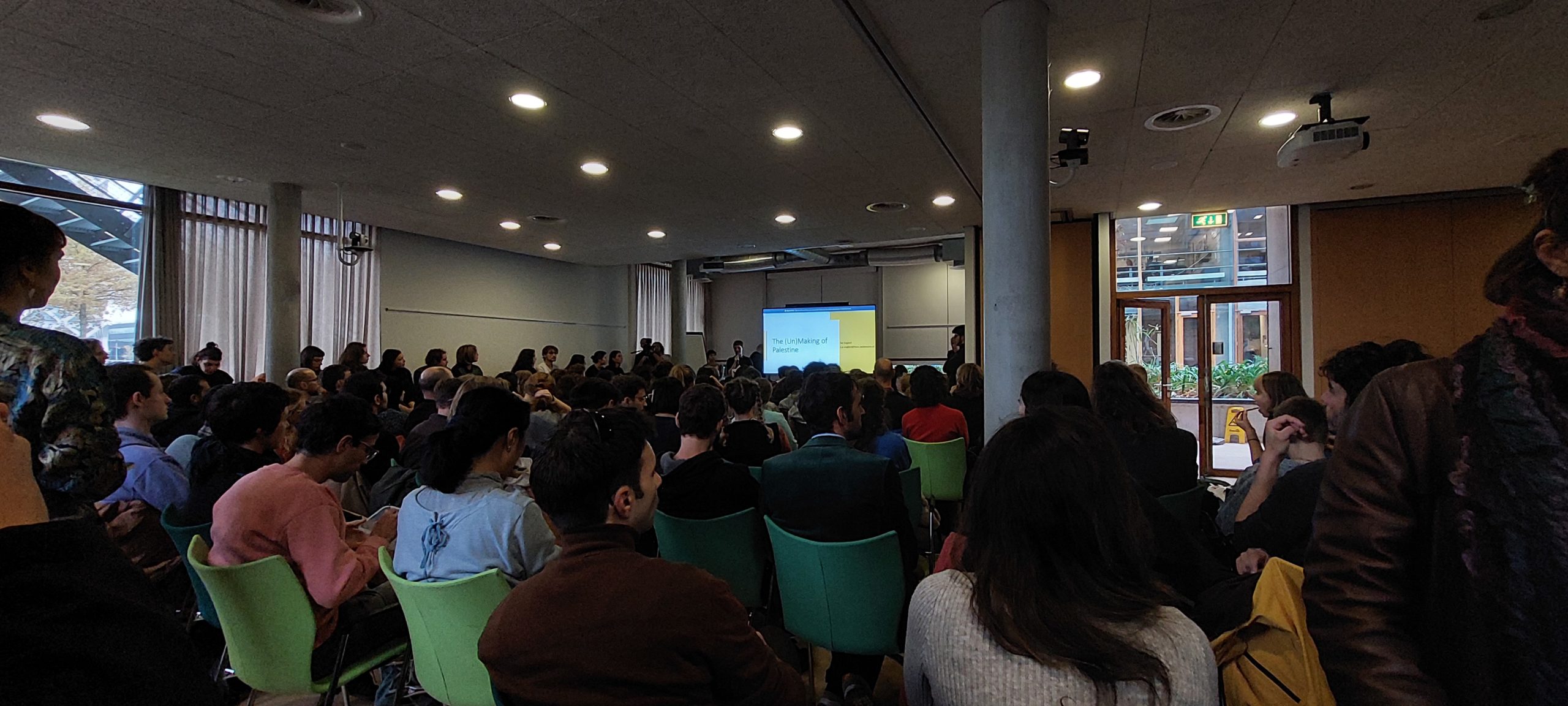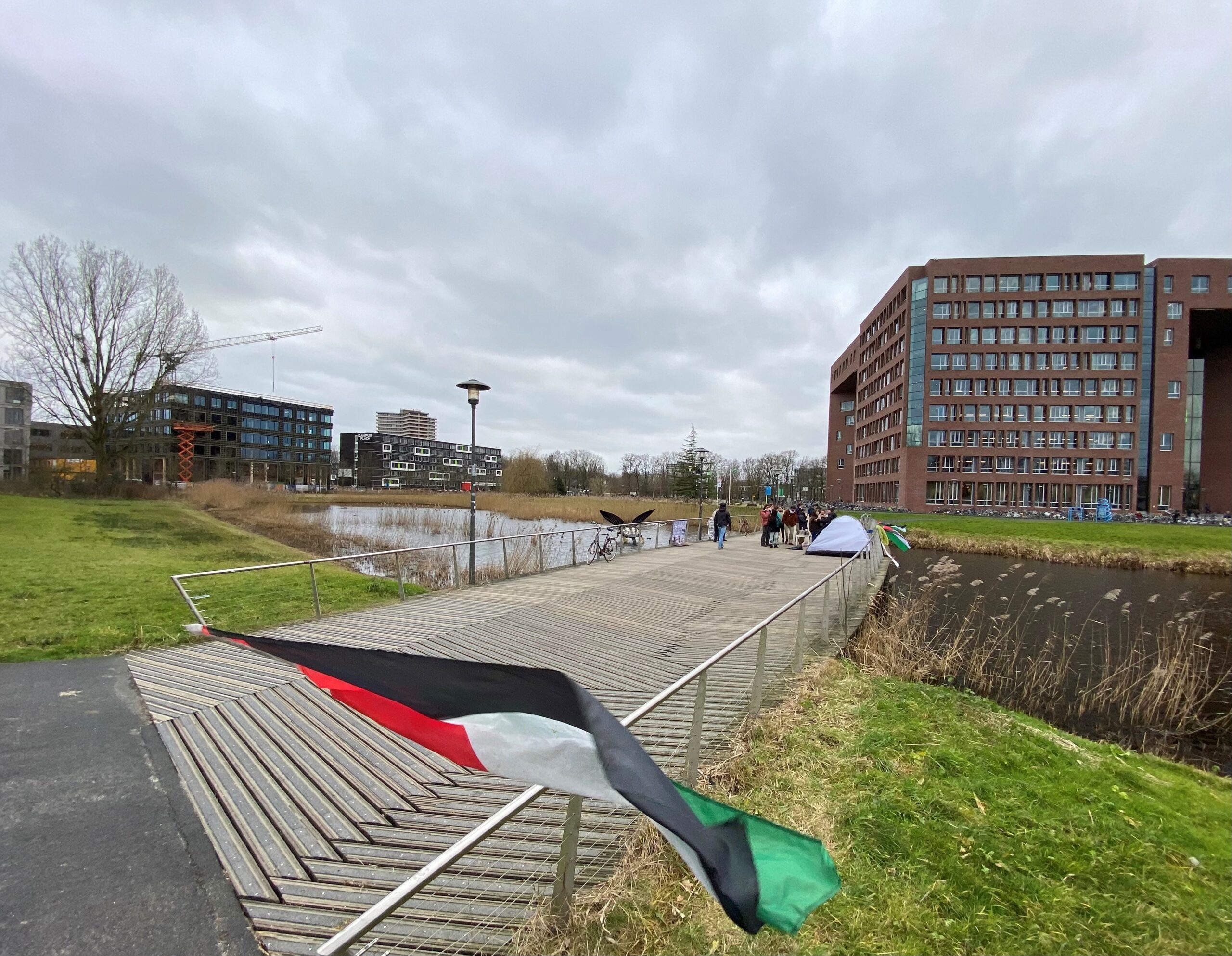Assistant professor Esther Marijnen and associate professor Joost Jongerden see how the Executive Board struggles to deal with demands, to take a clear stand against violence in Palestine. They wonder why that is the case, and argue that a university has a special responsibility to contribute to clarifying and explaining the situation.
Over the past few weeks, Dutch academia has obviously found it difficult to adopt a position on Israel’s violence against the residents of Gaza and the Westbank. Although the violence has stirred up a lot of strong feelings, few university boards have ventured to make a statement on it.
WUR too opted for silence. There has been no public communication on the situation to date, nor has the organization reached out to students and staff with personal connections with the region.
In response to this silence, a group of WUR students and staff asked the Executive Board to condemn Israel’s violence. Within a few hours, a spokesperson for the board answered that the board did not want to take a position, given that the university is not a political organization. In response, to this, students and staff launched a petition that has now been signed more than 650 times.
WUR said it didn’t want to make a statement, and yet it did so previously in response to Russia’s invasion of Ukraine. It is of course a political decision to express a view on one violation of International Humanitarian Law and not on another. What is more, the refusal suggests a lack of critical self-reflection. For example WUR has links with the Hebrew University in Jerusalem, which built part of its campus on occupied land. This is in contravention of international law, and a form of violence against Palestinians.
The discomfort comes partly from a false dichotomy: you are either for Israel or for Palestine.
So the issue here is not really whether a statement is made or not, but the fact that by virtue of what it does (or does not do), WUR inevitably adopts a political standpoint. Moreover, as important as consistent action in relation to international law, is a university’s obligation not to shy away from controversy but to seek to understand it.
Students set a good example, and invited an expert and lecturer from Leiden University to give a seminar on settler colonialism in Palestine to understand the background to the current crisis. At first, the university refused to broadcast the announcement of this seminar on its campus screens. The reason it gave was that the university doesn’t provide a platform for expressions of religious and political view – yet an election debate was organized on campus the very same day, and which was widely publicized by WUR itself and attended by the Executive Board. More than 200 students and staff attended the seminar, which communicates a clear signal to the board: don’t make what is happening in Gaza a taboo, but a subject of discussion, and analytical reflection.
It is bitterly ironic that although we discuss postcolonialism and decolonization at length at the university, and are aware of colonial history, venturing into the territory of contemporary colonialism apparently creates a feeling of unease. This discomfort comes partly from a false dichotomy: you are either for Israel or for Palestine. But if you defend the rights of Palestinians, you don’t deny the right of Israeli citizens to live in the country; you oppose the injustice of relegating others to the status of second-class citizens, or even non-citizens with no right to be there. The former creates an apartheid state, the latter paves the way for ethnic cleansing and genocide – as we have learned from the thinkers we talk about in our classes at Wageningen University: Hannah Arendt, Franz Fanon, Edward Said, Achille Mbembe, and Judith Butler.
Excluding Israel as a colonizer and an apartheid state from academic debate is an unacceptable restriction which also makes it impossible to discuss the possibilities for creating a just future. Declaring the issue ‘too complex’ and ‘taboo’ is a political act, which leads to silence and avoidance. It is tantamount to banishing academics to an ivory tower. But if we academics want to be part of society, and believe that as a university we can help clarify and explain things, and if we are serious about our social impact, now is the time.

 The initiators of the ‘Support Palestine’ petition organized a teach-in with a lecturer from Leiden University who delved into the background to the Palestine question.
The initiators of the ‘Support Palestine’ petition organized a teach-in with a lecturer from Leiden University who delved into the background to the Palestine question. 

![[Comment] Calm after the storm](https://www.resource-online.nl/app/uploads/2024/12/Ontruiming-tentenkamp-scaled.jpg)